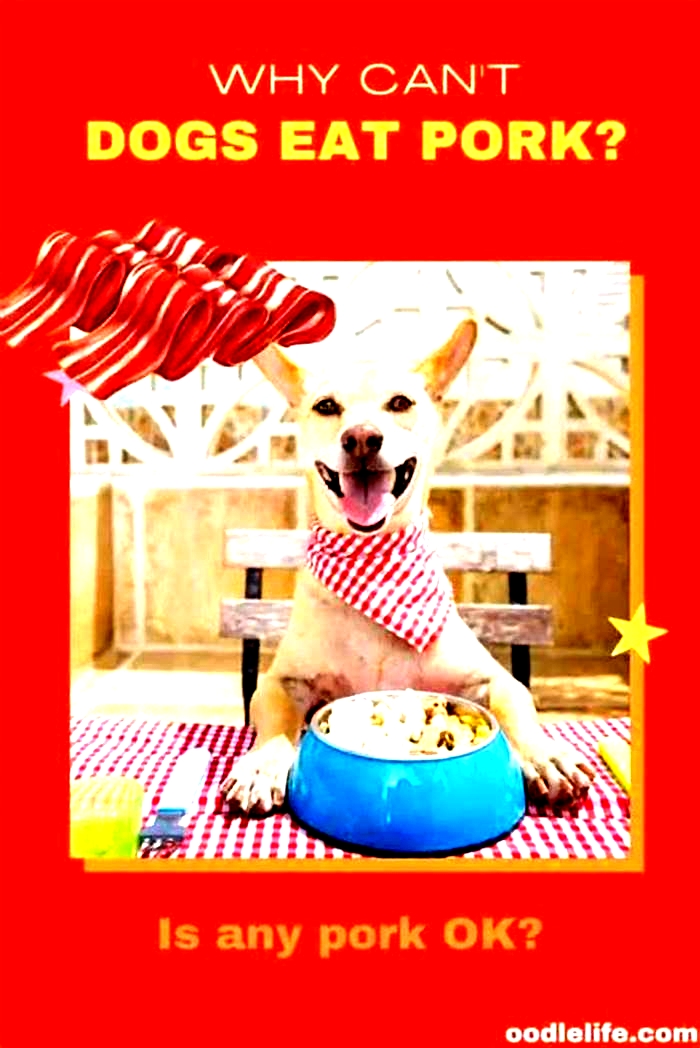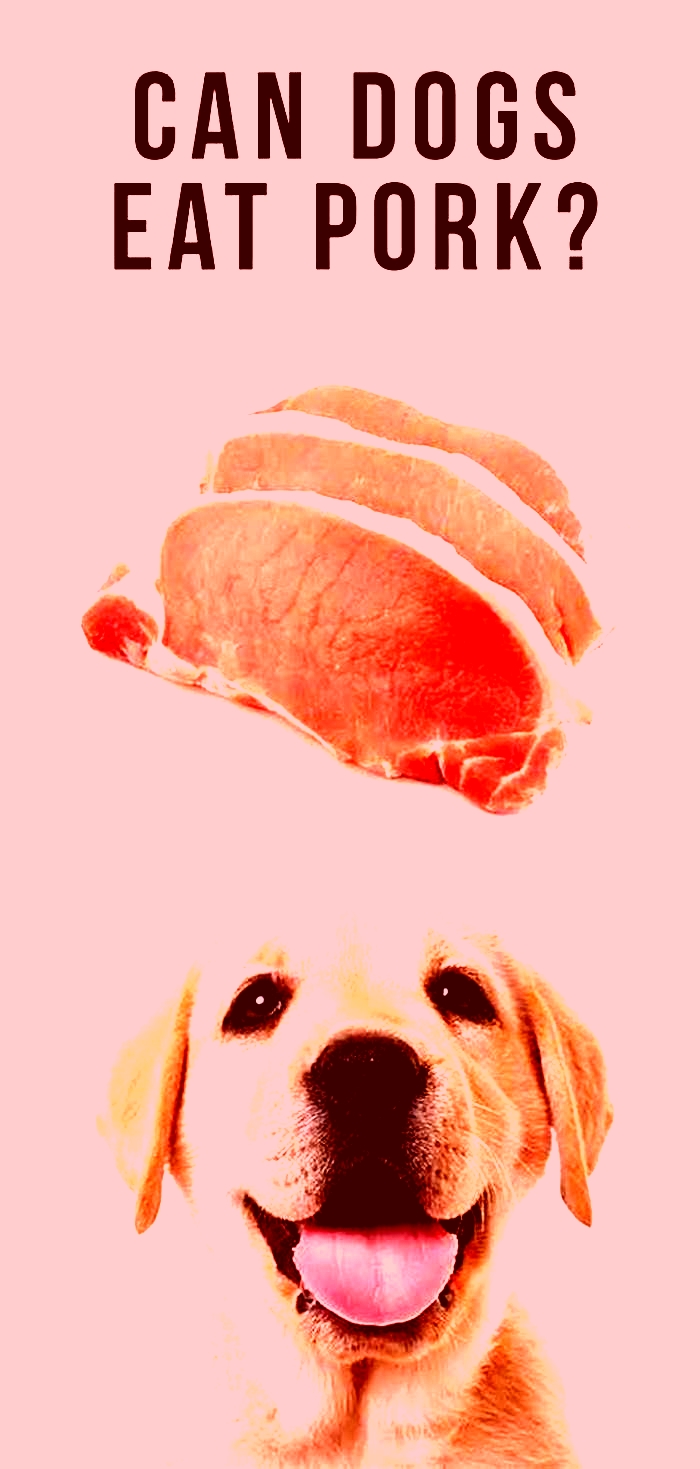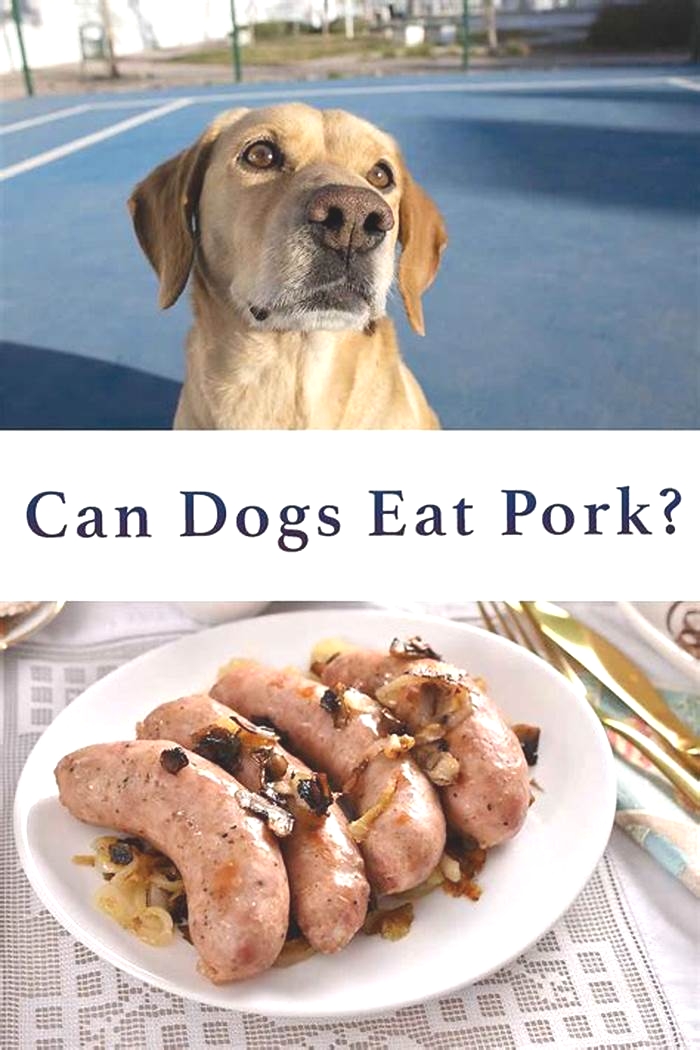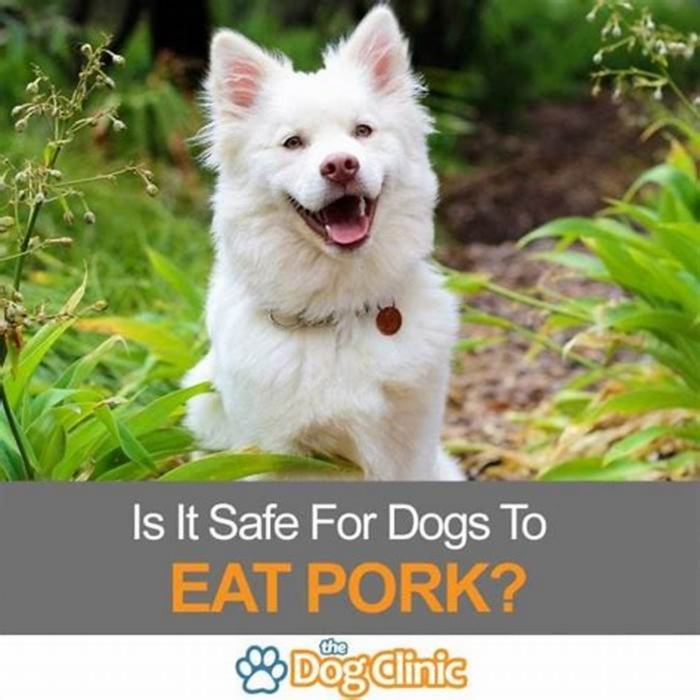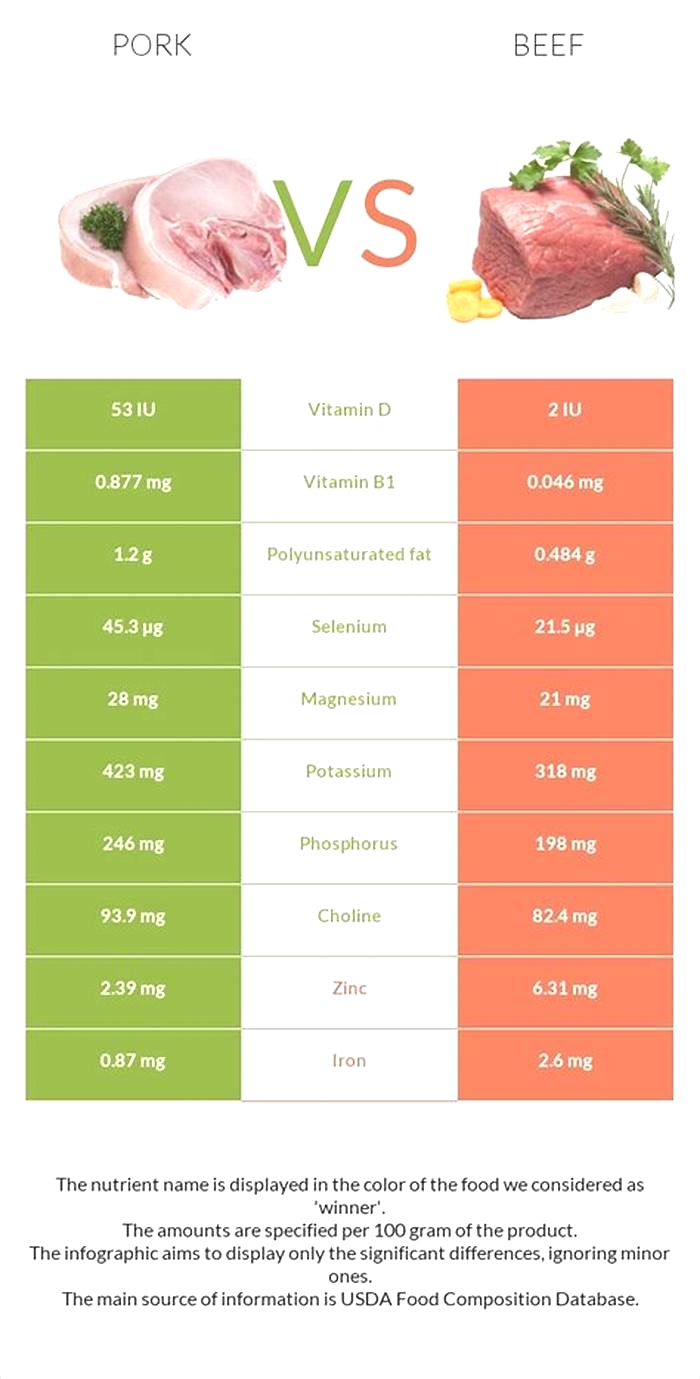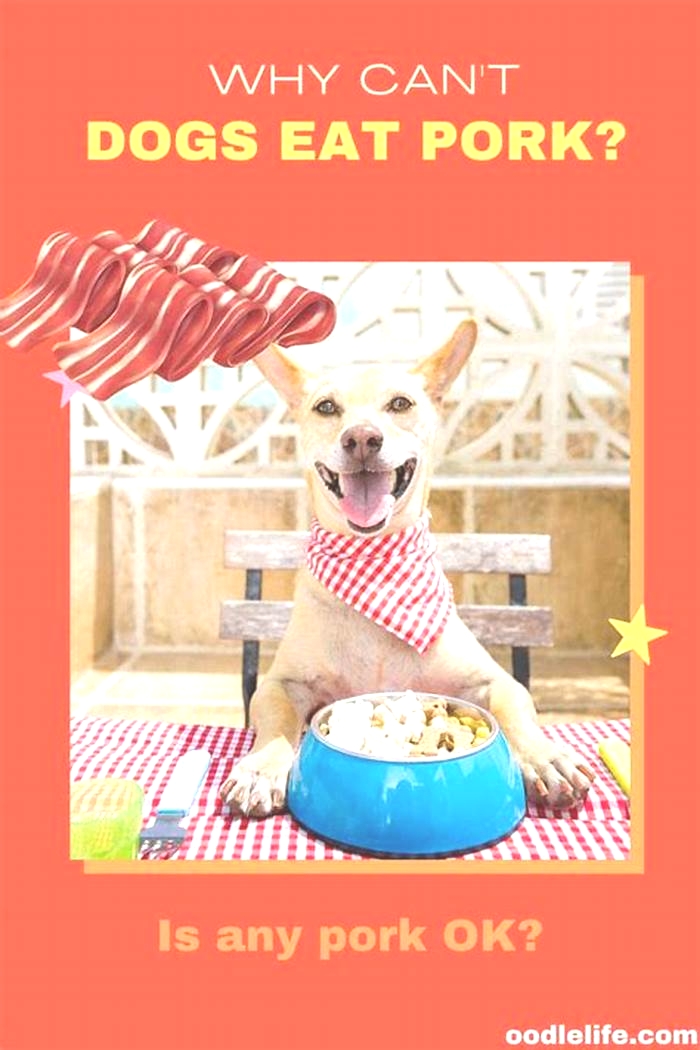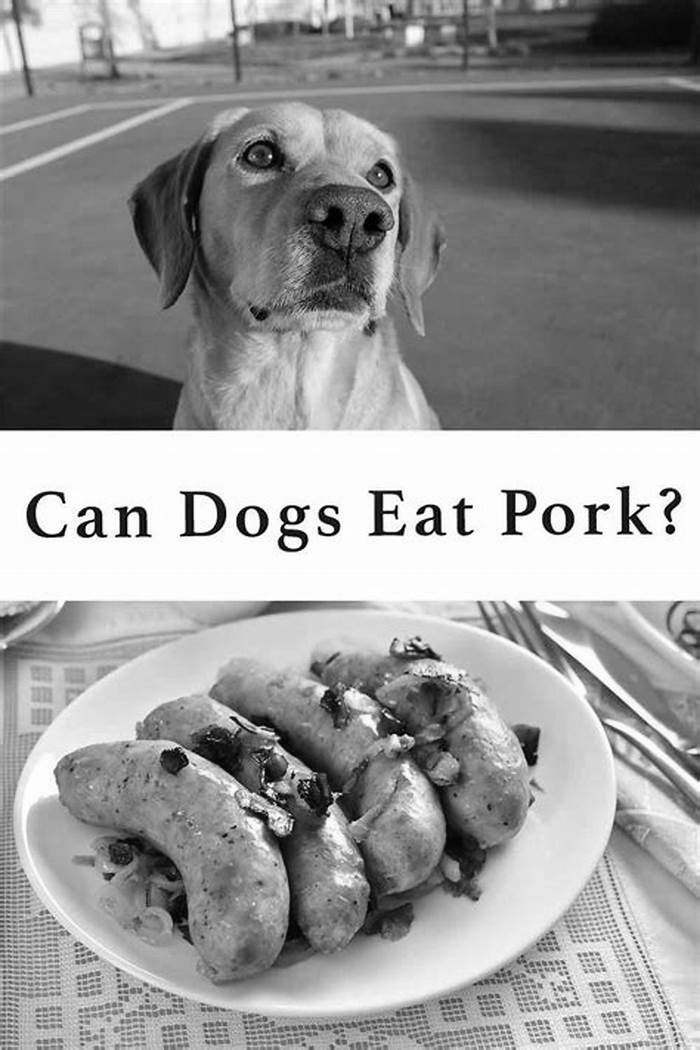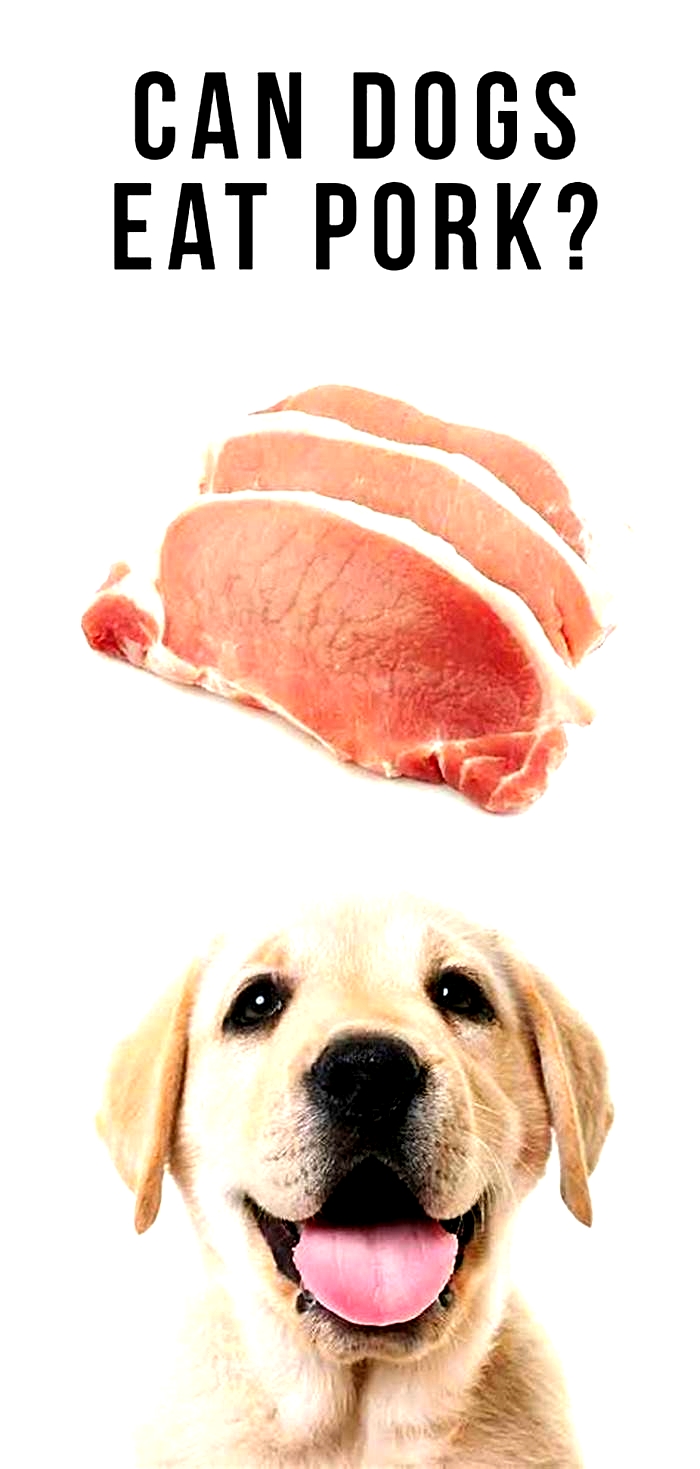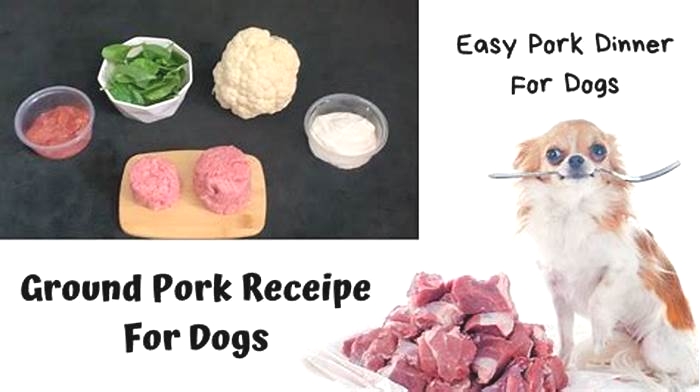Why shouldn t dogs eat pork
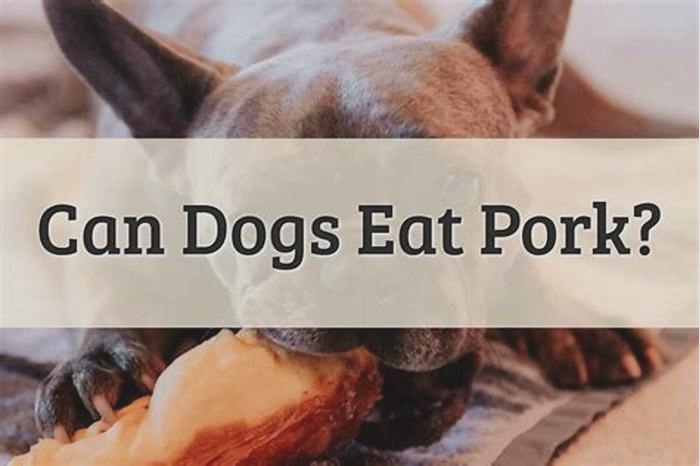
Can Dogs Eat Pork?
Your dog can eat pork as long as there is no seasoning, sauces, condiments, onions or other ingredients that can be potentially toxic. Pork has a high fat content, which is why its better suited for treat time every once in a while than added to your dogs diet as a staple. If in doubt, always check with your vet before making pork a regular addition to your dogs diet.
Can dogs eat raw pork?
It is not recommended for dogs to eat raw pork. Raw or undercooked pork meat might contain trichinella parasites which can infect both dogs and humans, and theres also the risk of contamination with a range of harmful bacteria. For these reasons, its always best to cook pork before handing it over to your dog.
Although infections with trichinella are rare, the disease can be serious. If your pet has managed to get their paws on a piece of raw pork, look out for the following signs:
- Vomiting
- Diarrhoea
- Lethargy
- Fever
- Stiffness
Get in touch with your vet if you notice one or more of the symptoms above.
Can dogs eat pork bones?
Dogs love to chew on bones, so its likely that youll be deeply appreciated by your canine friend if you throw a pork bone in their direction at dinner time. However, pork bones arent the best choice for a dog treat. Cooked pork bones are fragile, meaning that small pieces can easily splinter off and get stuck in your pets throat or damage their mouth or other internal organs. Raw pork bones are less brittle, but theres still a risk of splintering and a range of other problems, so its not recommended to feed them. Find out more about the risks of feeding bones to your dog here.
If your dog loves a good chew, there are many specially-formulated dog dental chews they can have. Theyre just as tasty as the pork bone theyre craving and much safer to give.
Can dogs eat bacon?
If the smell of sizzling bacon gets your dogs attention like nothing else, its important not to give in and feed them too much of this tasty meat. Keep in mind that bacon not only has lots of flavour, but also plenty of fat which might prove too much for your pets stomach to handle.
An upset tummy is not the only concern when it comes to feeding bacon to your dog. The high fat content in bacon means it can be added to the list of possible causes for dog pancreatitis, a life-threatening condition.
As well as its high fat content, bacon is also high in salt, which can be unhealthy for your dog in excess. So if you want to feed bacon to your dog, only reserve a very small amount as a treat perhaps for training. Be careful to avoid fatty cuts, and if your vet has suggested your pet could have particular problems with fatty foods due to their risk profile or history of previous disease, its worth asking their advice first before feeding bacon to your dog.
Can dogs eat ham?
Much like bacon, ham is high in salt, and it also has a relatively high fat content. Ham therefore carries the same risks as bacon, so again its only appropriate in very small amounts as a training treat. Remember that your dog does not need either ham or bacon for nutritional value, and be careful not to overdo it because salty, fatty, or preserved meats can be unhealthy for your dog.
Can dogs eat cooked pork?
Yes, dogs can eat cooked pork in moderation, but just like with any other type of meat, its best to keep things simple when preparing a meaty treat for your pet. Save your condiments for the family dinner, and give your canine companion a plain and simple piece just a little bit as a treat.
Can Dogs Eat Pork? When Is Pork Bad For Dogs? what should I do?
Can dogs eat pork meat? Some may find this question absurd because the answer is a resounding Yes! Is the answer, however, unequivocally Yes? Lets look at every angle of this question so that the next time someone asks us if dogs can eat pork, we can give them a clearer, more confident answer. Dogs, contrary to popular belief, are omnivores rather than carnivores. Their bodies get nutrition from both meat and plants.
However, we cant ignore the fact that their teeth, digestive system, and behavior are all designed to accept meat as their primary protein source and primary source of nutrients. So we couldnt blame anyone for raising their eyebrows when asked, Can dogs eat pork?
Also read:
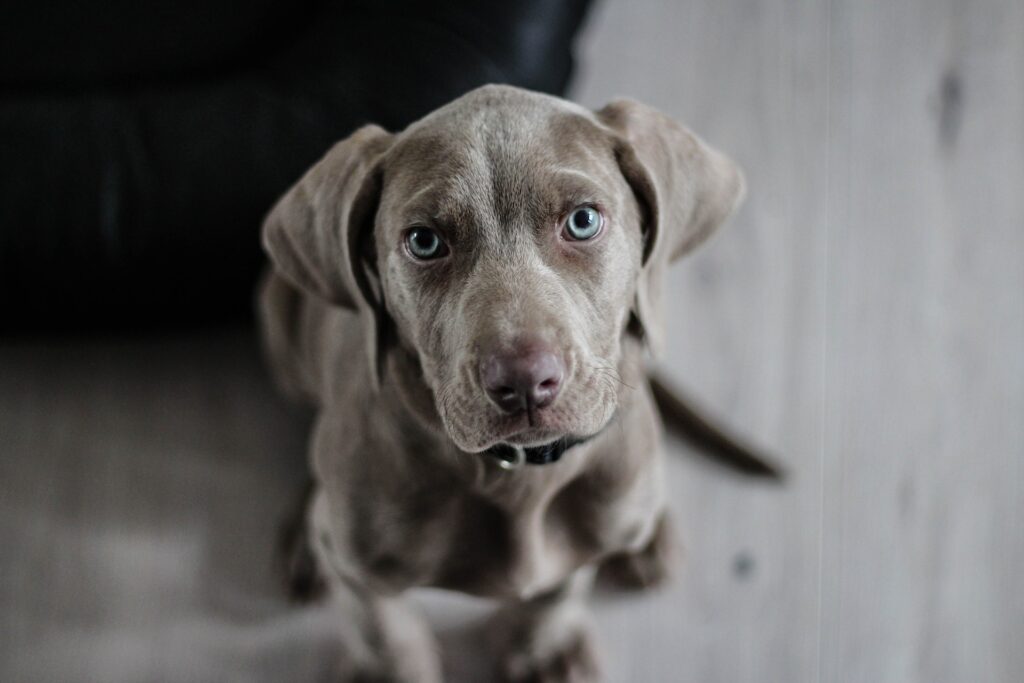
Can Dogs Eat Pork Meat?
Technically, yes, but the debate does not stop there. Pork is not toxic to dogs, so you can feed it to them. Certain conditions must be met, however, to keep your dog healthy and safe while he chews on the cuts of meat with gusto. To begin, your dog should eat cooked pork without added salt, spices, garlic powder, onion powder, or other potentially harmful ingredients. Keep his cooked pig meat as simple as possible. Keep the gimmicks of a gourmet pork dish to yourself. You deserve such a lavish treat.
Having said that, were not saying your dog doesnt deserve to be spoiled with seasoned pork products like bacon, ham, and pork chop. You may feel bad about not allowing your dog to sample these fatty and delectable human foods, but you should not. After all, dogs dislike these spices and flavors, and they cant even taste some of the ingredients we commonly use in our cooking. Dogs, on the other hand, are drawn to the meats fatty and meaty flavor. So dont feel bad about serving plain, unseasoned cooked pork to your dog for dinner.
Whether you think so or not, your dog will enjoy it. In addition, you can see it for yourself by keeping an eye on how quickly he consumes his homemade dog food.
Is it OK to feed pork to dogs? When Is Pork Bad For Dogs?
Yes, technically. You can feed your dog pork as a sort of meat, and pork is not hazardous to dogs. But, should your dog consume pork? That is an altogether different question. Some dog specialists believe that because of the unique properties of pork, you should avoid providing your dogs any pork products at all. Others argue that dogs can eat pork as long as specific safety precautions are followed. This is because not all meat is made equal.
You should be aware that, in general, pork is safe for dogs, as it does not produce any unfavorable and poisonous reactions like raw fish or macadamia nuts can. However, pork has a problematic history due to the following issues:
Trichinella may be present in raw pork.
Raw pork, like all uncooked or undercooked meat, is susceptible to Trichinella Spiralis, a roundworm. Trichinosis is caused by the larvae of this parasite, which causes symptoms such as high body temperature (fever), lethargy, muscle inflammation, discomfort, and stiffness. It is crucial to realize that any dog food or diet including undercooked meat may pose this risk.
Additives are frequently found in processed pork.
Even trace amounts of preservatives, spices, or additions such as onion powder, nutmeg, and garlic powder are exceedingly poisonous and hazardous to dogs. That is why dogs should never consume sausage or ham. Only simple pork is suitable for dogs.
Some types of pig products are heavy in salt and fat.
Some slices of pork are extremely fatty and may be difficult for dogs with damaged or weakened immune systems to consume. Aside from that, swine flesh in the form of bacon and sausages is high in salt. When a dog consumes certain foods, it may develop pancreatitis. Too much salt, on the other hand, can create digestive disorders known as bloat or twisted stomachs because your dog may become dehydrated from eating high salt diets and drink too much water to compensate, causing their tummies to enlarge.
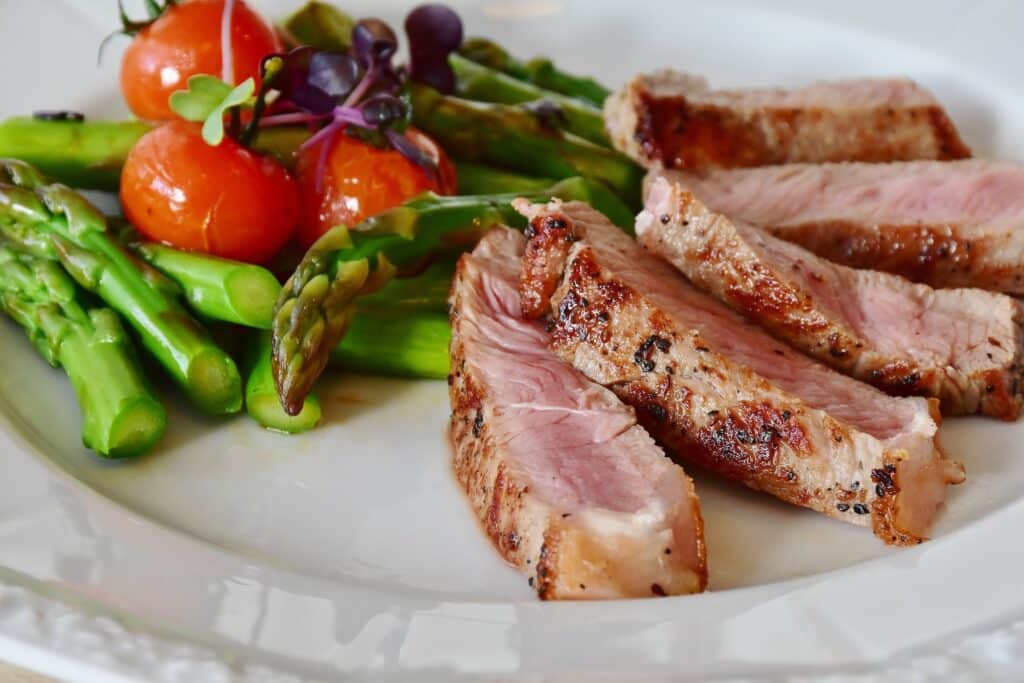
Can dogs eat cooked pork bones?
Before you throw a (pork) bone at your dog, remember that cooked pig bones are quite brittle and can easily break or splinter. They are thus a choking hazard and can cause tears in your dogs gut if swallowed. Instead of a pork bone, consider getting your dog a dog toy such as hemp rope instead. Hemp rope is a much safer and more durable option that is also eco-friendly.
Can dogs eat pork crackling?
Yes, in a nutshell, although it depends on the type of crackling. Regular, pate-style (bacon scrapings), and deep-fried pork cracklings are the three varieties to be wary of. If youre only thinking about regular bacon bits or deep-fried pieces, the same rules apply as with any other dog food; not all foods are safe for them, and some can cause stomach upset or worse. We need to look at the pork crackling itself for a more complete response. The two main types, pate-style and deep-fried, are widely available in supermarkets and restaurants.
Regular bacon bits or deep-fried pieces have little meat left on them, so feed in small quantities frequently and watch for signs of upset tummies. The pate-style pork cracklings are more expensive and may include dangerous chemicals that may cause your dog to become ill. However, they are a fantastic source of protein and healthy fats for your dog. While you should still conduct your homework, these are more likely to be safe for them in modest doses than the others.
Can dogs eat pork ribs?
Splintered pork rib bones might strangle your dog or cause significant internal injury. When your dog chews on cooked or raw pork rib bones, they are likely to splinter and shatter. Your dog may try to eat little fragments of the pig bone, which could result in choking or intestinal blockages.
Can dogs eat pork fat?
Perhaps you smuggled a bit of ham to your dog, or they ransacked the trash. In any case, youre probably wondering what happens if a dog eats pork fat. The quick answer is that dogs should avoid eating hog fat. There are also potential dangers to feeding your dog pork fat.
Conclusion
Pork can be eaten by dogs, although it is not the healthiest meat for them. Pork is high in fat, which contributes to weight gain and other health issues. The first thing you may notice about your dog after feeding it pork for a while is extra weight. However, there are some additional risks to feeding your dog pork: After consuming rotten pork items, the pet may develop food poisoning, which can result in intestinal damage, vomiting, fever, and even death. It is recommended to give dogs fresh pork and avoid seasoning it with salt or onions.
Article Sources: dogfood.guide , snowypineswhitelabs.com
Can Dogs Eat Pork? Is Pork Bad for Dogs? Find Out the Truth
The questions of can dogs eat pork, and is pork bad for dogs, are two that are very commonly asked.
After all, it can be hard to know which items of human food are safe for your dog to eat.
Before you give your dog pork products, its best to check out what is and is not allowed. Take a look at this handy guide to learn more about which pork products your dog can and cannot eat.
Can Dogs Eat Pork Bones?
The short answer to this question is no they shouldnt eat pork bones. Pork and poultry bones (both cooked and uncooked) are the two most dangerous that you can give a dog.
This is because they are incredibly easy to splinter into shards, which then present a choking hazard to your dog. Cooked bones of any kind are dangerous for this reason as well.
The shards, aside from presenting a choking hazard, can also cause damage to the mouth, throat, or intestines of your dog if they pass through without the dog choking. This can result in the need for immediate surgery, or even death.
When feeding your dog small pieces you dont really notice can cause blockages and lacerations, which is why dogs should always be supervised when they are chewing them.
Vets strongly recommend giving dogs raw bones (that are NOT pork , Ham or poultry) after they have had their meal.
After ten or so minutes, you should then remove the bone from them and place it in the fridge until the next day. After four days, the bone should be disposed of. A bone should also be larger than the length of a dogs muzzle to prevent them from being swallowed whole.
Of course, bones are a great way for your dog to prevent the build-up of plaque on their teeth, as well as prevent gum disease.
It also alleviates boredom and prevents them from chewing on their paws. Just remember to keep it safe, and that raw bones are not only dangerous, but also remove nutrients that your dog would need.
Why Cant Dogs Eat Pork?
Pork is a tricky subject as there is a lot of divide when it comes to deciding whether or not dogs can eat it.
Some say yes, others say no. Both vets and owners have their own views, so making your own choices might be a little tricky. However, at the end of the day, you need to do what you feel is best for your dog.
You will find that there are a large number of dog foods that contain pork, and so the negativity towards it can become a little confusing.
Some people feel that pork is a very processed meat, leaving it high in fat and salt when it is finally ready for consumption even for dogs. Others feel that there is a chance parasites could have infected the meat, which could then be passed onto your dog.
Feeding your dog treats such as pig ears and rawhides, however, is definitely discouraged. Aside from being high in fat, they are also processed using some pretty horrific chemicals that are not even fit for human consumption.
This carries a high risk of illness for your dog, so be wary when you next go to pick up these processed treats.
So, its not really a question of they cant eat pork, its more to do with the kind of pork you are feeding them.
In the next two sections, we look at cooked and uncooked pork helping you to determine the risks and benefits that come with each one. Hopefully, it will provide you with the insight you need to make an informed choice about your dogs diet.
Can Dogs Eat Cooked Pork?
The short answer here is yes; dogs can eat cooked pork. However, you also need to be careful with regards to the type of pork product you are giving them.
For example, a delicious nibble or pork chop from the dinner table is unlikely to do any harm, as long as you are giving them the meat. However, bacon is a different story.
Bacon is high in salt and fat, two things that can cause pancreatitis in dogs. Too much salt can also cause excessive thirst and urination, a condition that can lead to a dog drinking too much and become bloated, which can lead to death.
Even if your dog is sitting and begging in the most adorable way, resist giving them bacon for the sake of their health.
The same goes for giving them fatty pork rinds. The high concentration of fat (and sometimes salt) can cause serious health conditions that could lead to them dying.
Of course, a lot of this can also depend on the size of a dog. The smaller the dog, the less it takes for them to become sick and cause vomiting. Similarly, a larger dog needs more to become ill from overconsumption.
However, it is best not to risk it and to, instead, avoid giving your dog pork products that are high in salt and fat. A little bit of the meat, freshly cooked and ready to eat, is fine, but avoid the fatty rinds and bacon products.
Can Dogs Eat Raw Pork?
Once again, the short answer to this question is yes. It is considered safe for dogs to eat raw pork.
Generally speaking, it is seen as being as harmless to them as when they eat raw beef or poultry.
Wolves and wild dogs would ordinarily eat a lot of raw meat in their diet, so it is not an issue of whether or not they are able to digest the meat in the first place. However, there is one thing to watch out for.
Trichinosis is the thing that most vets and pet owners will warn you about causing damage before you decide to feed your pet any form of raw pork.
It is a disease that is caused by a species of roundworm that is known as Trichinella. You are able to find these parasitic worms in animals that eat meat as a part of their diet, which includes pigs, wild boar, and bears.
It is possible for both humans and dogs to contract trichinosis by consuming raw or undercooked pork products (or the product of any other meat-eating animal) that have been infected with Trichinella larvae. The symptoms of trichinosis are as follows:
- Stomach upsets and vomiting
- Cramps
- Nausea
- Fever
- Weakness
- Muscle pain
- Inability to chew
- Seizures
- Heart failure
- Respiratory issues
Can dogs die from eating pork?
Death can occur, but it is very rare. If your dog becomes ill after consuming raw pork, call your vet immediately and seek advice.
Trichinosis is not a particularly common issue in the modern world, as farming now is a lot different.
Cooked plainporkwithout any seasoning is usually not dangerous fordogstoeat. The high fat contentcanbe difficult fordogsto digest, however, socan cause gastrointestinal problems or even pancreatitis if eaten too often.
However, it is still prevalent in second and third world countries not to mention that it can still happen in first world ones. It is important to be careful when you feed your dog raw pork, and you should always consult your vet before changing your dogs diet in any way.
To Conclude
Hopefully, this guide has helped you to determine the risks and benefits that come with your dog eating pork. Its certainly not an easy choice to make, and a lot of it does rely on your personal opinion on which ham & pork is safe for dogs.
The answer to the question of can dogs eat pork, is a definite yes. However, when asked is pork bad for dogs, it becomes a greyer area.
A lot of it depends on the kind of pork you feed them, and as long as you consult your vet first, you should be just fine. Remember the importance of talking to your vet about these things they are often far more educated and informed than the internet.
What did you think of our guide to whether or not dogs can eat pork? Is there anything that you would have added? We love hearing from you, so leave a message for us in the comments below.

